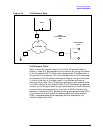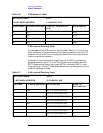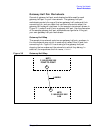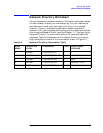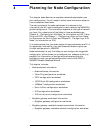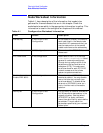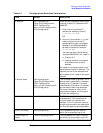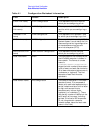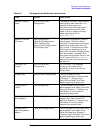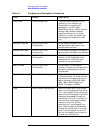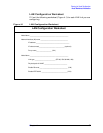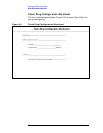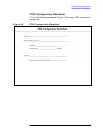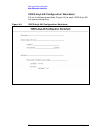
Chapter 4 63
Planning for Node Configuration
Node Worksheet Information
IP address LAN Configuration;
Token Ring Configuration;
FDDI Configuration;
Point-to-Point Configuration;
X.25 Configuration
There are two methods of entering an
internet protocol (IP) address within
NMMGR:
1. Enter the fully qualified IP
address (for example, Class C,
C 192.191.191 009).
OR
2. Enter only the network (
nnn
) and
node (xxx) portions of the IP
address as four positive integers
between 0 and 255 separated by
periods or blanks (for example,
15.123.44.98).
You need not enter the following
items as NMMGR will fill these in:
a. Class A, B, C
b. Leading zeros for the network
and node portion of the IP
address.
All nodes on the same network must
use the same class of IP address. The
network portion of the address must
be the same for all nodes on the same
network.
IP subnet mask LAN Configuration;
Token Ring Configuration;
FDDI Configuration;
Point-to-Point Configuration;
X.25 Configuration
The IP subnet mask is optional. An IP
subnet mask is specified in the same
format as an IP address. The mask
identifies which bits of an IP address
will be used to define a subnetwork.
For more information refer, to the
configuration chapter for the type of
link you are configuring.
Link name The link name represents a hardware
interface card. This name must be
unique to both the node and the
network. The link name can have up
to eight alphanumeric characters and
the first character must be alphabetic.
(LAN Link name) LAN Configuration This represents the LAN card for
which you are configuring a link.
(Token Ring Link
name)
Token Ring configuration This represents the Token Ring card
for which you are configuring a link.
Table 4-1 Configuration Worksheet Information
Field Screen Description



